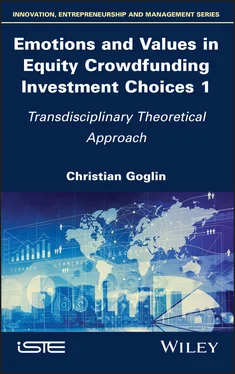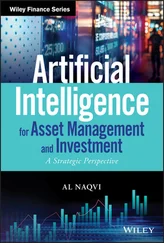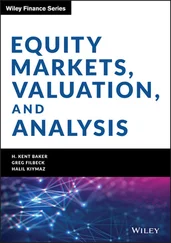Christian Goglin - Emotions and Values in Equity Crowdfunding Investment Choices 1
Здесь есть возможность читать онлайн «Christian Goglin - Emotions and Values in Equity Crowdfunding Investment Choices 1» — ознакомительный отрывок электронной книги совершенно бесплатно, а после прочтения отрывка купить полную версию. В некоторых случаях можно слушать аудио, скачать через торрент в формате fb2 и присутствует краткое содержание. Жанр: unrecognised, на английском языке. Описание произведения, (предисловие) а так же отзывы посетителей доступны на портале библиотеки ЛибКат.
- Название:Emotions and Values in Equity Crowdfunding Investment Choices 1
- Автор:
- Жанр:
- Год:неизвестен
- ISBN:нет данных
- Рейтинг книги:3 / 5. Голосов: 1
-
Избранное:Добавить в избранное
- Отзывы:
-
Ваша оценка:
- 60
- 1
- 2
- 3
- 4
- 5
Emotions and Values in Equity Crowdfunding Investment Choices 1: краткое содержание, описание и аннотация
Предлагаем к чтению аннотацию, описание, краткое содержание или предисловие (зависит от того, что написал сам автор книги «Emotions and Values in Equity Crowdfunding Investment Choices 1»). Если вы не нашли необходимую информацию о книге — напишите в комментариях, мы постараемся отыскать её.
Emotions and Values in Equity Crowdfunding Investment Choices 1 — читать онлайн ознакомительный отрывок
Ниже представлен текст книги, разбитый по страницам. Система сохранения места последней прочитанной страницы, позволяет с удобством читать онлайн бесплатно книгу «Emotions and Values in Equity Crowdfunding Investment Choices 1», без необходимости каждый раз заново искать на чём Вы остановились. Поставьте закладку, и сможете в любой момент перейти на страницу, на которой закончили чтение.
Интервал:
Закладка:
ISTE Ltd
27-37 St George’s Road
London SW19 4EU
UK
www.iste.co.uk
John Wiley & Sons, Inc.
111 River Street
Hoboken, NJ 07030
USA
www.wiley.com
© ISTE Ltd 2020
The rights of Christian Goglin to be identified as the author of this work have been asserted by him in accordance with the Copyright, Designs and Patents Act 1988.
Library of Congress Control Number: 2020943265
British Library Cataloguing-in-Publication Data
A CIP record for this book is available from the British Library
ISBN 978-1-78630-633-3
Acknowledgments
This book deals with choices in situations of uncertainty, emotional reactions and values. It is derived directly from doctoral thesis work carried out between 2016 and 2018.
I would like to thank Professor Philippe Desbrières, my thesis supervisor, for giving me the chance to commit myself to this PhD, for giving me a great deal of freedom, and also for supporting, encouraging and guiding me by suggesting ideas that I have been also substantially developing or by recommending training which was always timely. Moreover, I am honored by the confidence he has shown in me during these 3 years and I am deeply grateful to him for it.
I would like to thank Mr. Marc Filser for his availability, his support in the financing of an experiment, his review of the experimental protocol, his advice and for edifying avenues for reflection and, finally, for doing me the honor of participating in my thesis jury.
I am also grateful to Professors Véronique Bessière and Armin Schwienbacher for having accepted the demanding role of referee in my thesis jury. Reading their work has fed my reflection and their comments will be sources of enrichment for my future. I hope that they will find the expression of my respectful gratitude here.
I would like to thank the members of Crego for their constructive and kind remarks during laboratory seminars. In particular, I would like to thank Mr. Gérard Charreaux for his always valuable remarks, Mr. Fabrice Hervé for his support and wise recommendations and Mr. Bertrand Belvaux for his suggestions concerning the analysis of the data. Finally, I would like to thank Mrs. Évelyne Poincelot and Miss Kirsten Burkhardt for their pertinent remarks.
I will not forget the professors of my research master’s degree in management sciences, some of whom were able to bring abstract concepts or theory to life through their passionate communication.
I would like to thank the members of the CRESE research laboratory at the Université de Franche-Comté for their hospitality and the sound advice from their economists, in particular, Mr. François Cochard and Ms. Karine Brisset.
Many thanks also to the doctoral students Ms. Gaztelumendi and Ms. Bataillard for their diligent participation in pretesting experiments.
I would also like to thank the university staff who collaborated or facilitated the organization of experiments, particularly Ms. Bois-Prinet, Mr. Frédéric Pellerin, Mr. Renaud Aubert, Ms. Chloé Roger, Mr. Guy-Daniel Ligan, Ms. Esla Fachinetti, Ms. Florence Demougeot, Ms. Chittaro and Mr. Millereux.
Finally, I would like to thank my wife, who has personally contributed to the experimentation and has supported me unconditionally in this adventure, as well as my daughter, who was born only a few months before this big move and who, for many weekends, had to put up with a studious father. I dedicate this work to them as well as to my late maternal grandmother, my “mamie”, without whom nothing would have been possible.
Introduction
[…] we neither strive for, nor will, neither want, nor desire anything because we judge it to be good; on the contrary, we judge something to be good because we strive for it, will it, want it, and desire it.
Baruch Spinoza, quoted in Miller (2015)
This introduction begins with a brief introductory statement on the genesis of this research, then continues with a presentation of the context, the justification and exposition of the research object, the methodological approach taken, and the expected contributions of this book before concluding with a presentation of the general plan of this book.
The starting point for this research topic is a simple premise: “behaviors and, more specifically, the choices of investors operating on equity crowdfunding (ECF) platforms were, a priori , necessarily marked by a strong emotional dimension.” From this first approximate conjecture, the result of a spontaneous interpretation that comes from the psychology of common sense, the next step was to follow a rigorous, scientific approach. First of all, this inductively inferred conjecture required a literature review in the field of entrepreneurial finance.
Research context
ECF is a recent financing method. Therefore, of course, the scientific literature on the subject is not very developed. The first works, which are descriptive, focused on themes such as the success of fundraising campaigns or the motivations of the participants on the platforms. The historical sectors or professions of crowdfunding, donation and reward-based crowdfunding were first explored, and these results were then used as a basis for research into ECF, which is more financially-oriented. In fact, this innovative method of financing, by subscribing to the capital of a young company, involves a host of investors who are a combination of friends and family, business angels and crowdsourcing participants (Onnée and Renault 2014).
The question of the choice of projects by investors is essentially dealt with from the perspective of information theory or signal theory (Akerlof 1970; Spence 1973) 1 . Information asymmetry is particularly strong for companies at the seed stage, where potential investors seek to interpret the available information on the project to detect quality signals (Ahlers et al . 2015). The information available to potential investors is protean, consisting primarily of information provided by management, including the project description, a video of the entrepreneurs’ pitch, the business plan and all of the fundraising campaign’s posts. Secondarily are all the social interactions on the platform (Lin et al . 2013; Freedman and Jin 2014). This includes exchanges between investors or questions and answers between investors and managers. The kinetics of the campaign (Hornuf and Schwienbacher 2015b) and the completion rate of the fundraising target (Agrawal et al . 2014) are also important quality signals. All this information leads the investor, who is not competent to judge the appropriateness of investments on their own, to imitate, which is a behavior at the origin of the herd behavior which can lead, to a certain extent, to information cascades, i.e. a situation where only the decisions of other agents determine investment choices.
Social interactions can also take place outside the platform, for example, for friends and family who will in fine invest on the platform. In this case, literature considers that friends and family have private information that can be assimilated to a quality signal (Agrawal et al . 2015). It should also be noted that, although distance is another factor explaining the choice, it is strongly correlated with friends and family.
A second approach is implicit; it consists of inferring the determinants of individual choices from those of the crowd as a whole. Indeed, the choices of the crowd result, according to methodological individualism (Boudon 2004), from the aggregation of individual choices. More precisely, studies of the success of campaigns reveal the choices made by the crowd. However, the main determinants of the success of fundraising campaigns are social in nature. In addition to the herd behavior already mentioned, Mollick (2013) shows that the size of an entrepreneur’s social network is a key success factor. However, the social network is merely an extension of the group of friends and family to circles of indirectly connected individuals. Therefore, the explanation for this effect is likely to be twofold: the number of Facebook friends or Twitter followers can be interpreted per se as a quality signal; moreover, when the members of this social network participate in the campaign, the explanation of private information about the leaders and their chances of success, given for friends and family, is also applicable.
Читать дальшеИнтервал:
Закладка:
Похожие книги на «Emotions and Values in Equity Crowdfunding Investment Choices 1»
Представляем Вашему вниманию похожие книги на «Emotions and Values in Equity Crowdfunding Investment Choices 1» списком для выбора. Мы отобрали схожую по названию и смыслу литературу в надежде предоставить читателям больше вариантов отыскать новые, интересные, ещё непрочитанные произведения.
Обсуждение, отзывы о книге «Emotions and Values in Equity Crowdfunding Investment Choices 1» и просто собственные мнения читателей. Оставьте ваши комментарии, напишите, что Вы думаете о произведении, его смысле или главных героях. Укажите что конкретно понравилось, а что нет, и почему Вы так считаете.












